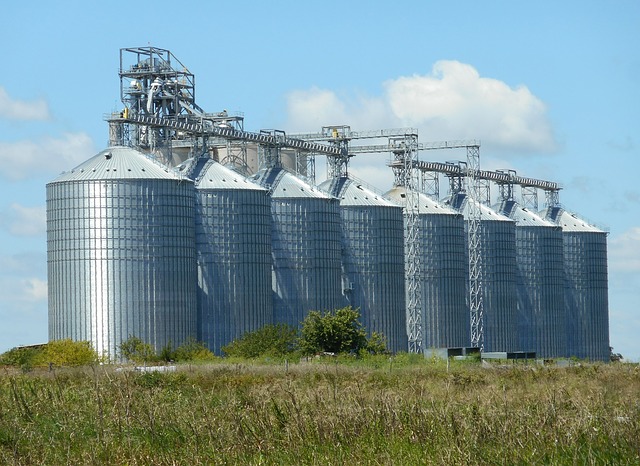February 2, 2018
Consolidation continues in the commodities arena as market conditions remain a challenge. Shifts in consumer demand, advances in technology, global bumper crops, and a multi-year low commodity cycle have created a difficult atmosphere for the world’s top traders. In response, global giants such as Cargill, Louis Dreyfus, ADM, and Bunge, among others, are turning to consolidation and diversification as ways to fight back through gaining scale and expanding into higher margin businesses.
Amid these shifts, Archer Daniels Midland (ADM) has approached with an undisclosed bid to takeover rival U.S.-based global trader Bunge, according to the Wall Street Journal – a move that will likely be met with rigorous regulatory examination, and which could spark a bidding war with Swiss commodities giant Glencore, which made an unsuccessful play for Bunge last year.
“The ADM approach has to be considered defensive and is a clear example of the consolidation that is taking place in the grain and grain processing industries,” Jay O‘Neil, senior agricultural economist with Kansas State University, told Reuters.
Questions
The move to acquire Bunge, which would intensify ADM’s presence in commodities, is being viewed by industry insiders as possibly questionable, as most traders have been looking to extend their reach up the supply chain to higher margin, value-added businesses. ADM itself has moved in that direction in recent years, buying Wild Flavors in 2014 for $3.1 billion; Eatem Foods, a natural and organic flavors company, in 2015 for an undisclosed amount; and Amazon Flavors, Brazil’s top producer of natural extracts, emulsions, and compounds, in 2016.
However, it could also be a pre-emptive strategy. The standstill agreement barring Glencore from making another bid for Bunge expires in February, and ADM’s move could be a defensive one.
“From an ADM perspective, Glencore absorbing Bunge would create a dangerous competitor for them. So they may be trying to deter Glencore,” Jean-Francois Lambert, founding partner of consultancy Lambert Commodities and a former HSBC banker, told Reuters.
None of the three parties involved are releasing further information, but developments have sparked another question, according to the Wall Street Journal – does a bid from ADM for Bunge negate the standstill agreement placed upon Glencore? And will Glencore make another bid?
Furthermore, there is another possibility – that pushback from U.S. anti-trust regulators due to massive overlaps between ADM and Bunge could result in ADM and Glencore splitting the Bunge business between them.
Both ADM and Bunge hold massive U.S. interest, with ADM seeing sales of $62.3 billion and Bunge seeing sales of $42.6 billion in 2016. And although Bunge has a greater presence in South American markets and ADM has a greater presence in the U.S., the overlap in crushing and other grain related activities and operations would certainly lead to the divestiture of assets.
“A combined company would likely be the dominant grain merchandiser and processor” on both continents, Seth Goldstein, an equity analyst at Morningstar, said in an analysis, reports Agri-Pulse. “However, we see potential regulatory concerns for a merger, given the high market share in both grain merchandising and oilseeds processing that a combined ADM and Bunge would have in both the United States and Brazil.”
Bunge Makes its Own Move
Meanwhile, amid the speculation, Bunge North America, announced it has acquired Minsa Corporation – a wholly-owned U.S. subsidiary of Grupo Minsa that includes corn flour milling sites in Red Oak, Iowa, and Muleshoe, Texas.
The company states that the acquisition is a strategic move in support of its Food & Ingredients business, as the corn mills will be providers of corn masa, the main ingredient in corn tortillas, chips, and other packaged foods.
“These assets, together with our existing plant in Worthington, Indiana, make Bunge a leading U.S. producer of corn masa, a product that is experiencing significant growth not only here, but around the globe,” said Todd Bastean, president, Bunge North America.
The addition of the Minsa assets also will strengthen Bunge’s capabilities in the high-growth sub-categories of organic and non-GMO grain and ingredients, and specialty products such as blue and red corn.
“With additional locations throughout the U.S., we will be better able to provide customers with a high-quality, reliable supply of products nationwide,” said Daniel Maldonado, managing director, Bunge Milling. “We look forward to partnering with customers to help build their brands and using our strong innovation capabilities to further support them in meeting evolving consumer needs with an on-trend portfolio.”
-Lynda Kiernan

Let GAI News inform your engagement in the agriculture sector.
GAI News provides crucial and timely news and insight to help you stay ahead of critical agricultural trends through free delivery of two weekly newsletters, Ag Investing Weekly and AgTech Intel.




